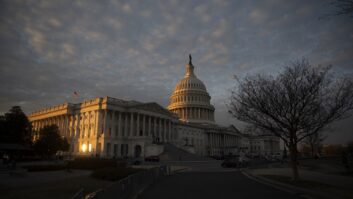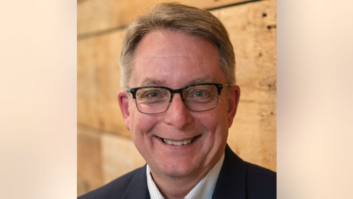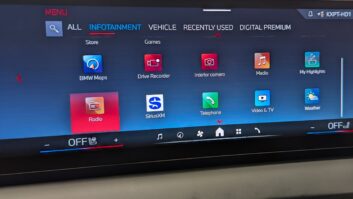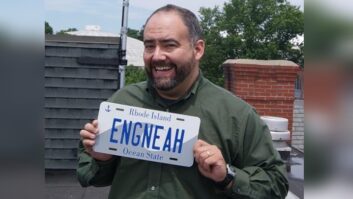After reading the Chris Imlay commentary “Are Broadcasters First Responders? Let’s Not Confuse Roles” in the May 9 issue, and the counterargument laid out by Rod Ziegler in “Yes, Broadcasters Are First Responders, Volunteer Fireman Argues” in June 20, it seems to me that Mr. Imlay presents the more convincing argument for designating broadcasters as something other than first responders.

While I agree that there needs to be a way for broadcasters to have access to their stations in times of emergencies, I think it a bit presumptuous to conclude that those in our profession rise to the same level as our men and women in uniform, be they military or civilian.
My daughter and son-in-law both worked in law enforcement as cops on the beat in the Denver area. There was not a night that I didn’t go to bed and wonder if that phone call — the one you never want to get — would come in the middle of the night. Do your loved ones lose sleep over you for the same reason?
Those who walk the walk and have earned first responder status put their lives on the line every day. In a typical day, how many times have any of us had to rescue someone from a burning fire, apprehend an armed and dangerous criminal or bring someone back from the brink of death?
I want to be clear that I have the utmost respect for those who serve as volunteer firefighters. You provide a vital service to your community. But this is not about what someone does outside of his or her day job. If you take a hard look at the real motivation behind getting back on the air, would it be about disseminating emergency information, or is it about something else?
Regardless of the reason a station is off the air, we will do whatever we can to restore things to normal. Broadcasters are generally self-motivated in their response to a station outage. It’s in our nature to want to restore service as quickly as possible. But are we more deserving of some special status that elevates us to the same level as someone who is personally and directly responsible for saving lives and property? I think not.
There is a need, however, to access our stations more easily at times like this.
A type of “first informer” status that allows us into areas that otherwise would be off-limits is appropriate. I support the idea that we are “essential service providers” and that we need to have some means to access our stations in times of disaster.
But this should assume that the station is making itself available to disseminate real-time information that can make a difference to the community it serves. Just continuing normal programming and parroting EAS alerts does not, in my opinion, meet the standard of first informer status.
I’ve been in broadcasting for nearly 45 years and involved in EAS in my community. I spent many years as a ham radio operator providing communications for first responders during and after emergencies.
I also spent many years as a weather spotter, eventually becoming an assistant emergency coordinator for our county ARES group and rewriting our emergency procedure manual. In 1988 my spotter report confirmed the observations of a law enforcement officer and triggered the sirens for the tornado that eventually ravaged much of Council Bluffs, Iowa. That was on a Friday afternoon. I spent the balance of my weekend doing damage assessment work for the Red Cross and FEMA. I had unencumbered access in areas where I wasn’t sure I really wanted to be driving — for the simple reason that I had ham radio plates on my vehicle.
I have some experience with the importance of easily recognizable access to areas affected by disaster.
Folks often refer to me as the station’s chief engineer. I will correct that, reminding them that I am the designated chief operator. I tend to avoid the term engineer when referring to myself. And while many of us are more than technicians, not all of us have actually earned engineering degrees. I prefer to call myself what I am: a technician. I do so out of respect for those who have done the work and earned the degree. I don’t need special status that might confuse what I do from the important work of others. I just need the tools to do my job. Likewise, I don’t think we need to confuse the issue of who is a first responder. First informer access is the right tool for this job.
I do support the idea of some kind of first informer designation so that we can do what we need to do. But we must be realistic about this. Calling ourselves first responders is just not what we are about.
Mr. Imlay learned that lesson the hard way and from the very people he represents. I don’t think this is splitting hairs at all. Let’s focus on being what we are and not worry about what many of us are not.
Let’s check our egos at the door before we head out to do the job we would normally do anyway. When it comes to restoring communications in the face of a disaster, there is really no room for any of that.
The author is chief operator of UNO-TV, Mav Radio, KVNO licensed to the University of Nebraska at Omaha.







